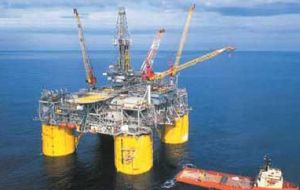MercoPress. South Atlantic News Agency
“The party is over” for Latam countries China-dependent on their exports
 Soy beans from Brazil and Argentina
Soy beans from Brazil and Argentina “The party is over” and Latinamerican countries should be concerned since the Chinese economy is slowing down, apparently entering a low growth period and many in the region have become notoriously ‘China-dependent’ after a decade of strong expanding sustained bilateral relations.
According to Andres Oppenheimer, an Argentine born Miami Herald columnist in recent days a raft of news is indicating that the three decade explosive growth in China is coming to an end, which will have an impact on exporters such as Venezuela, Argentina, Chile, Peru, Uruguay and others that have grown at great pace boosted by the Asian giant’s demand for commodities.
“We are not talking of a minor bump in the road but something more fundamental; we could say that the Chinese development model is about to collide with the Great Wall and the only question is how serious will the collision be”, said Nobel Prize Paul Krugman in a recent column.
Likewise George Friedman, editor of the Stratford influential newsletter wrote about “the end of the Chinese economic miracle”. And bets are no longer on when China overtakes the US bur rather what could be the consequences of a Chinese collapse.
China’s economic growth has dropped from an annual average of 10% in the last three decades to a forecasted 7.5% or less this year, and a long term paper from the World Bank and China’s Research Centre anticipates annual growth of 5% in the next decade.
This last week the usually optimistic Eclac (UN Economic Commission on Latin America and the Caribbean) downgraded growth estimate for Latam this year from 3.5% to 3% precisely because of a softer demand from China.
Commodities exports to China from Latam jumped from 4bn dollars in 2000 to 72bn in 2012, and many had forecasted that China would definitively replace the US as the main trade partner of the region.
The Eclac report said that “we are probably at the end of the increase in basic produce export prices associated with the expansion of China”. Among which metal exporters such as Peru, Chile and Suriname, and oil exporters Venezuela, Bolivia, Ecuador and Colombia, and food exporters Argentina, Brazil and Uruguay.
Oppenheimer concludes that the slowdown in China could signal the end of the populist cycle in Latam based in the increase of commodities’ prices experienced by Latam in the last decade.
He adds that several countries (Venezuela, Bolivia, Ecuador and Argentina) squandered the greatest export boom in recent history in subsidizing transport instead of investing in infrastructure and education to create long term prosperity.
Obviously the current forecasts about some imminent collapse of China could be exaggerated as those which anticipated Beijing would soon overcome the US as the world’s leading economy, but the fact is that exports to the US and Europe are falling and Chinese costs have soared, tempting investors to move their factories to cheaper countries.
Likewise Oppenheimer argues that the current Beijing policy of promoting the domestic market instead of exports will not necessarily be effective since Chinese families will continue to save to pay for their children’s education and health schemes which are not free, on the contrary rather costly and highly competitive.
Summing up, Oppenheimer says Latam countries which benefited from China will have to do what should have been addressed from the very beginning: diversify exports: it’s not the end of the world, ‘but the party is over’.






Top Comments
Disclaimer & comment rules-

-

-

Read all commentsThe Chinese boom was always going to end simply because all booms end.
Jul 30th, 2013 - 06:08 am 0The trick is to reorientate and reform when export growth slows.
Funnily enough this slowdown may benefit Australia as any Chinese slowdown will drive competition on prices and Australia though expensive in many respects will always win on transport costs.
It's time for some South American countries to use their low costs especially in labour to attract some of the manufacturing that China is losing. The US takes 17% if China's exports. There is billions to be made by a smart government.
if you were to tie every single economist in the world together into one straight line ...
Jul 30th, 2013 - 07:35 am 0I seem to remember arguing with some really dumb Rg posters that this was coming last year.
Jul 30th, 2013 - 08:40 am 0And again I was right
China will be lucky to keep civil unrest from their big East Coast cities. My bet is they won't be able to as their banks fail, real estate bubble bursts and 3 generations of wealth are lost by their fragile middle class.
The thing I will like the best will be the slowdown in Chinese tourists to the USA. Ugh between Brazilians and Chinese you can't move down the streets. Nasty dirty people with no manners.
As China slows the USA will pick up the slack, practically free energy, stable currency, stable gov't, hardworking innovative society. The next decade is looking very very good for the USA.
Commenting for this story is now closed.
If you have a Facebook account, become a fan and comment on our Facebook Page!